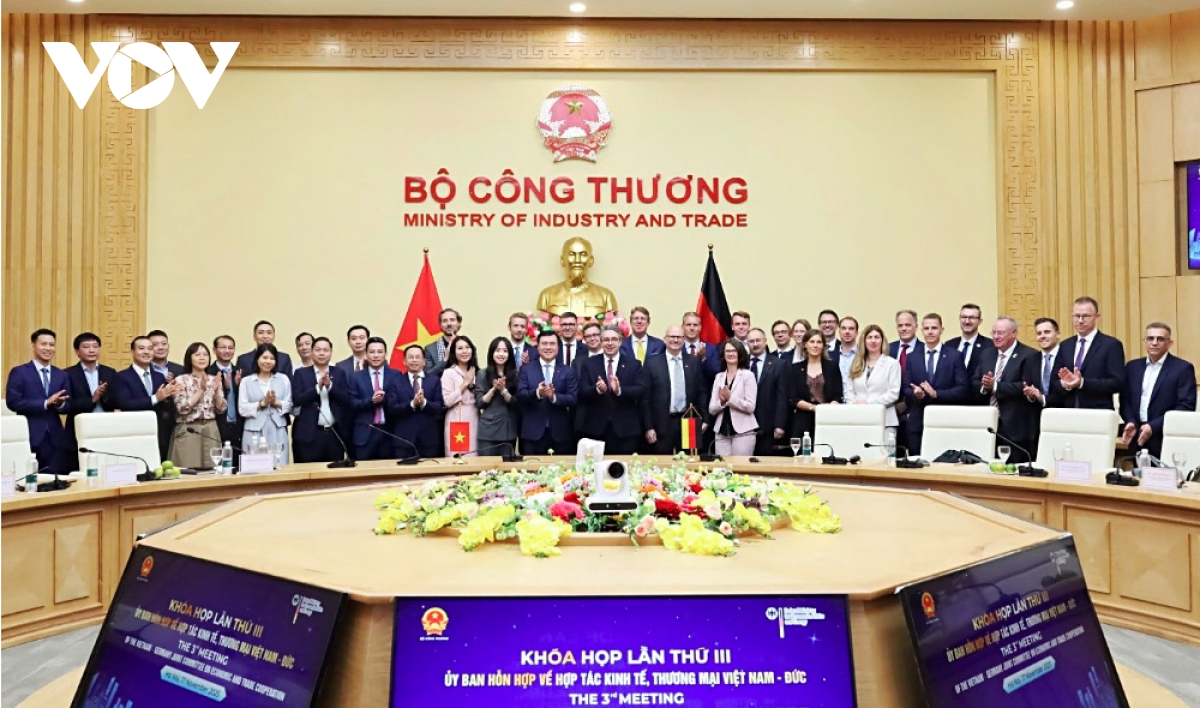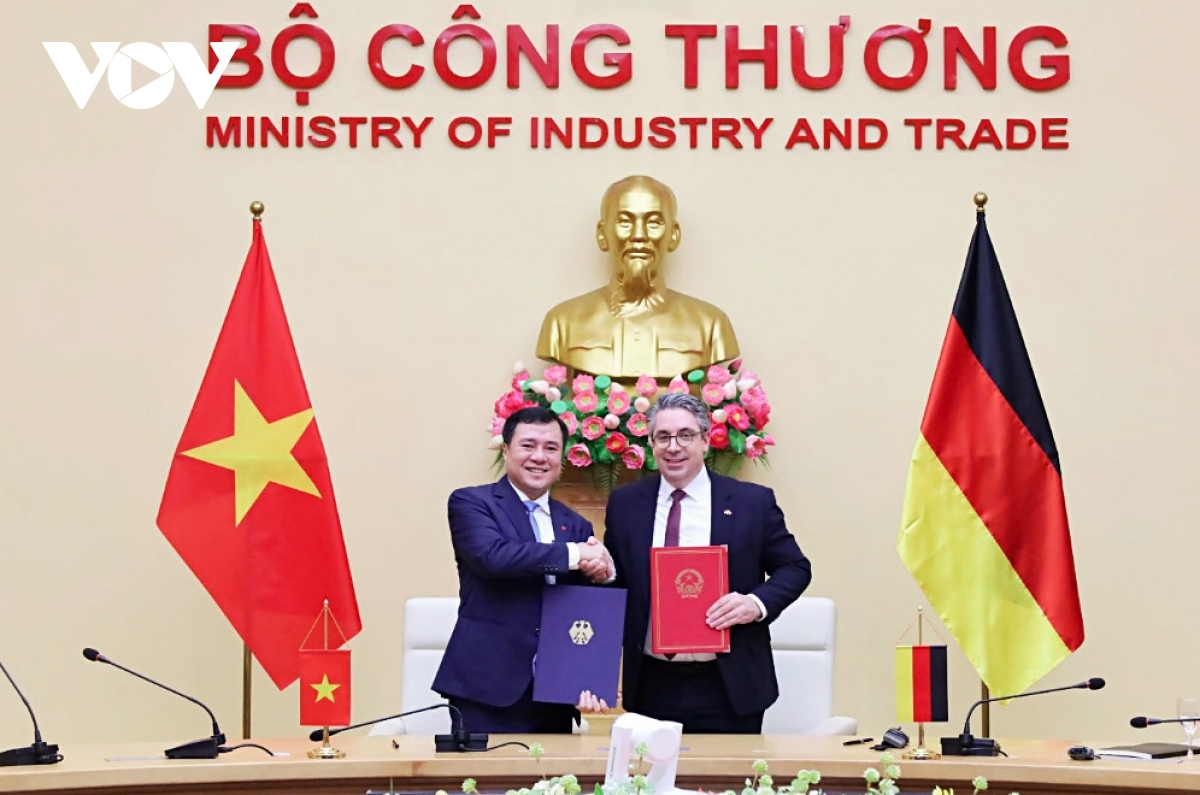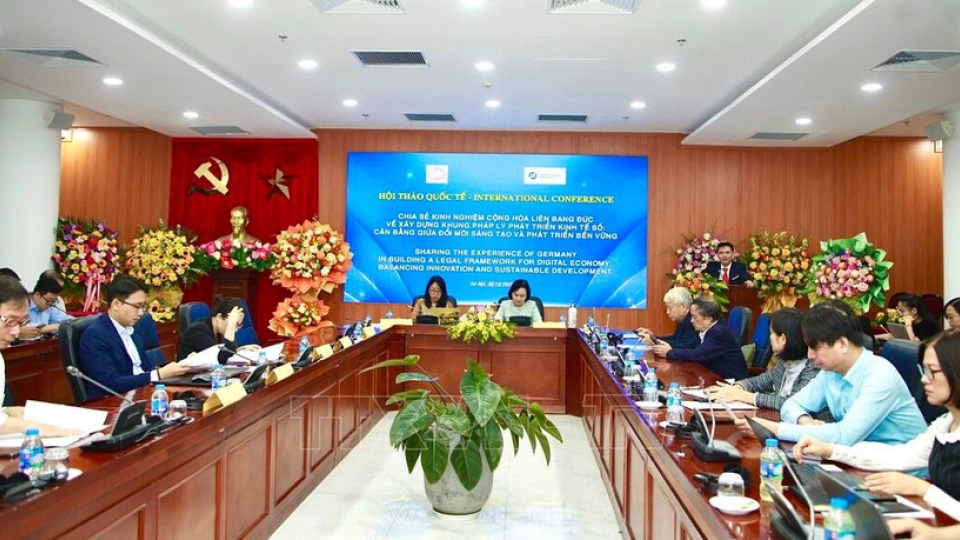Vietnam and Germany identify priorities in economic and trade cooperation
VOV.VN - Vietnam and Germany reviewed progress in bilateral cooperation and identified strategic priorities in their economic and trade relations at the third meeting of the Vietnam -Germany Joint Committee on Economic and Trade Cooperation, held in Hanoi on November 17.

The meeting, co-chaired by Nguyen Sinh Nhat Tan, Deputy Minister of Industry and Trade of Vietnam, and Stefan Rouenhoff, Parliamentary State Secretary of the Federal Ministry for Economic Affairs and Energy of Germany, was attended by representatives from relevant ministries, agencies, and a wide range of business communities from both countries.
In his speech, Tan emphasised that the multi-dimensional partnership between the two countries continues to grow strongly, based on friendship, close coordination between ministries, and increasingly deep connections between the business communities.
Regarding energy cooperation, both sides identified it as a key pillar and welcomed the upgrade to the Vietnam–Germany Energy Partnership. This framework aims to promote energy transition, reduce emissions, strengthen energy security, and expand business cooperation.
Key priorities for 2025–2026 include maintaining the annual High-Level Steering Committee, establishing technical working groups, and promoting training, research, and business networking. Germany is also highly valued for its role in implementing projects under the Just Energy Transition Partnership (JETP).
In the field of industry and digitalisation, both countries agreed to further promote automobile manufacturing and attract investment in supporting industries such as textiles, footwear, electronics, and high-tech products.
The Vietnamese side invited German investors to focus on sectors incentivized under the 2025 Chemicals Law and to collaborate on green chemistry for sustainable development. Technology transfer, innovation, digital transformation, and human resource training in green skills, digital skills, and Industry 4.0 management were highlighted as priority areas.
With regard to trade, both sides committed to increasing information sharing, maintaining stable commerce, ensuring smooth supply chains, and making full use of multilateral mechanisms, especially the EU–Vietnam Free Trade Agreement (EVFTA).
Germany was requested to assist enterprises in meeting European market regulations and to encourage investment in deep processing of agricultural and aquatic products, logistics, cold storage, and transshipment hubs.

The co-chairs signed the Minutes of the meeting, which documented the priority areas for cooperation in the coming period.
Germany is currently Vietnam’s second largest trading partner in Europe, accounting for more than 17% of Vietnam’s exports to the European Union. As of the end of October 2025, bilateral trade reached over US$11.1 billion, up 15.1% compared to the same period in 2024.
In investment and industry, around 300 German enterprises are operating in Vietnam, including leading corporations such as Siemens, Mercedes-Benz, Bosch, ZF, Bayer, and B.Braun.
In the energy sector alone, the two countries signed a joint declaration on the establishment of an energy partnership on July 3, 2025, creating a new impetus for energy cooperation.
As of October 31, 2025, Germany has 509 active investment projects in Vietnam with a total registered capital of US$3.009 billion, ranking 17th among 153 countries and territories investing in the country.
The meeting reaffirmed Vietnam and Germany’s commitment to strengthening economic and trade cooperation, focusing on energy, industry, digitalisation, and trade to promote sustainable development and enhance business connectivity between the two countries.





